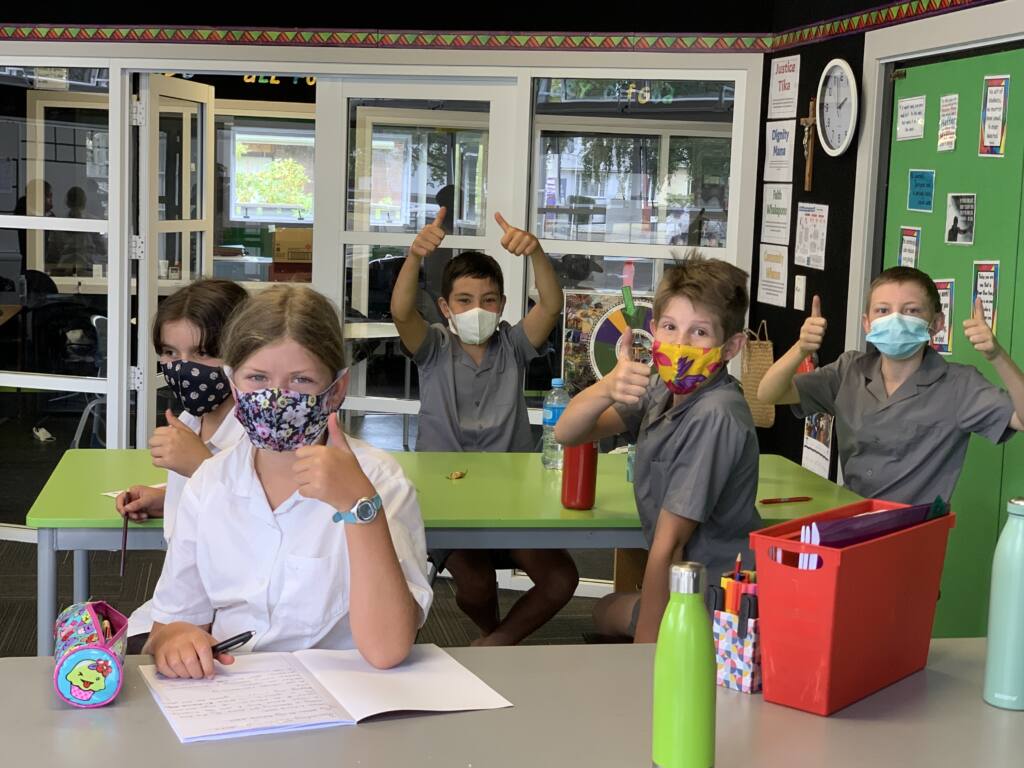
WelCom April 2022
Teresa Edwards, Manager, Catholic Education Office
Te Rohe Pīhopa o, Te Papaioea – Diocese of Palmerston North
The ever-changing Covid-19 environment our schools have been navigating since 2020, impacts our communities on so many levels. The constant changes around how, as a nation, we have been responding to the pandemic has required enormous adaptability and flexibility by our school leaders. The strategic way in which the school year is usually planned, is – for the time being – a day-by-day response, making it hard to know what’s ahead. Our leaders have had to pull on every ounce of their faith, resourcefulness and resilience to ensure our tamariki and rangitahi continue their learning and faith journeys.
A school is a community. How do we respond during a pandemic that prevents ‘community’ but more than ever requires us to be the hands and feet of Christ supporting and reaching out to each other?
The following account by one of our wonderful faith leaders, offers an insight into some of the many challenges Covid has presented school community life in this ongoing and uncertain journey.
The key impacts to our school communities have been the vaccination mandate and loss of quality teachers; concentrated sharing of ideas and resources; wellbeing; and sacramental programmes.
Teachers being stood down unsettled the students and has required a huge amount of additional time and work for principals. Normal school routine has been replaced with hybrid learning; finding cover for unwell teachers; costs for paying relievers for days booked when they are isolating or sick, while also paying for someone to cover for them and the absent teacher; managing mask wearing by staff and students; learning outdoors – weather permitting; staff isolating from each other to avoid close contact; not getting together as a whole school for prayer, liturgy, and celebrations; younger ones not knowing the senior students as classes rarely mingle; and staff tired from keeping up with all the information and extra preparation.
Responses have involved producing and delivering hard-copy materials to families, organising for relievers, teaching and support staff caring for and helping each other out, and having flexible plans in place for everyone to adapt quickly to constant changes.
Many activities have been cancelled, such as interschool sporting events, camps, Daffodil Day and Mission Day Gala. Timetables have been cleared of extra activities to allow teachers to focus on students’ learning. Although disappointed, the students are handling the changes well and our school faith leaders continue to regroup everyone and find solutions.
We celebrate where we can and look out for one another. Principals are in constant contact with each other as a support network and there is lots of sharing about expectations between staff, community and students. Support is also coming from relief teachers willing to step in, teachers keeping programmes engaging and exciting, parents being very supportive of required procedures, and the Board checking in regularly.
Throughout, staff continue to work hard to support whānau, students and each other and are in constant contact with those who are anxious, unwell, isolating or working from home.
Living God bless us with protection, intuition, companionship, discernment, practicality, and the ability to be ready for the next moment. Amen